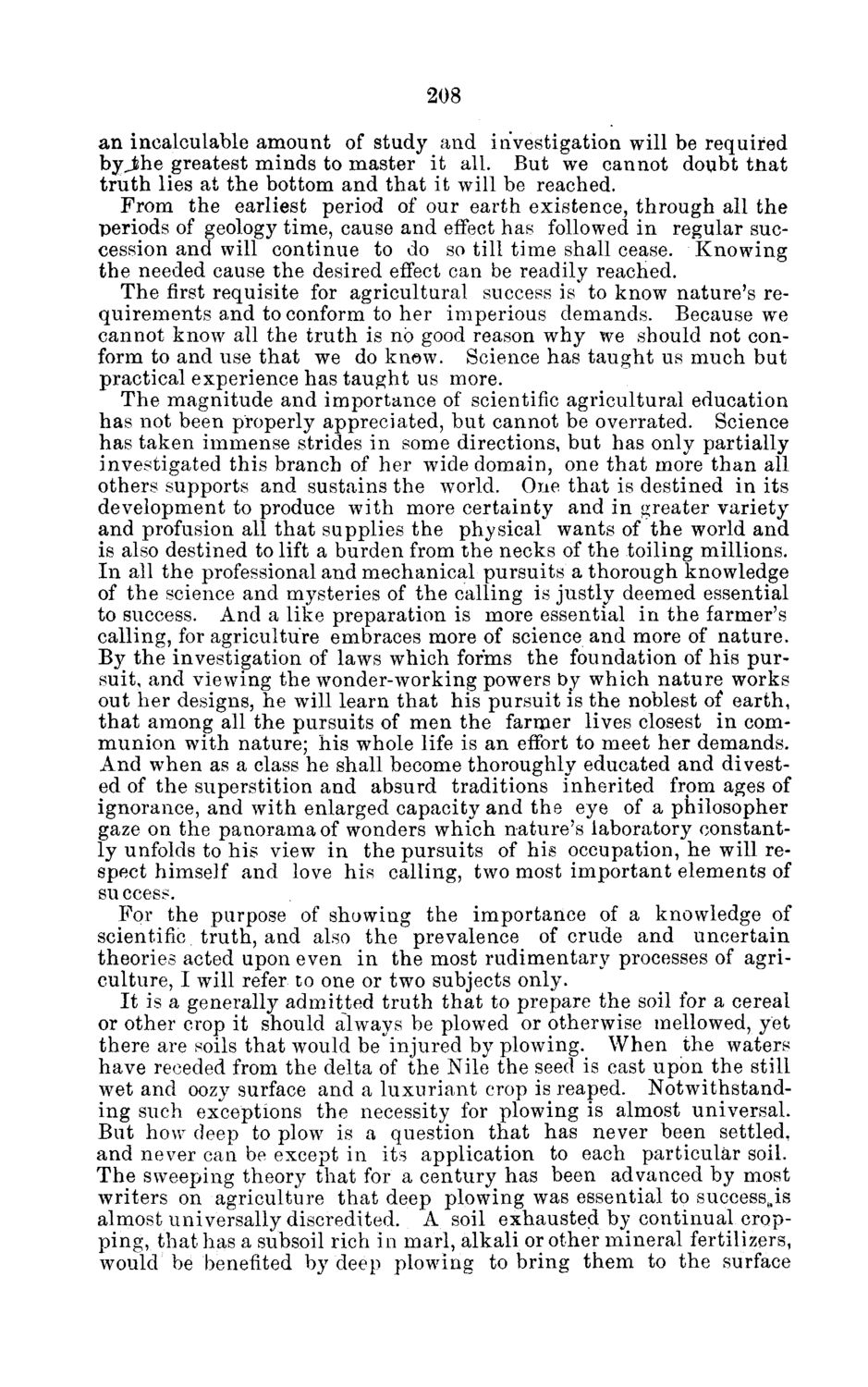| |
| |
Caption: Board of Trustees Minutes - 1876
This is a reduced-resolution page image for fast online browsing.

EXTRACTED TEXT FROM PAGE:
208 an incalculable amount of study and investigation will be required b y j h e greatest minds to master it all. But we cannot doubt that truth lies at the bottom and that it will be reached. From the earliest period of our earth existence, through all the periods of geology time, cause and effect has followed in regular succession and will continue to do so till time shall cease. Knowing the needed cause the desired effect can be readily reached. The first requisite for agricultural success is to know nature's requirements and to conform to her imperious demands. Because we cannot know all the truth is no good reason why we should not conform to and use that we do know. Science has taught us much but practical experience has taught us more. The magnitude and importance of scientific agricultural education has not been properly appreciated, but cannot be overrated. Science has taken immense strides in some directions, but has only partially investigated this branch of her wide domain, one that more than all others supports and sustains the world. One that is destined in its development to produce with more certainty and in greater variety and profusion all that supplies the physical wants of the world and is also destined to lift a burden from the necks of the toiling millions. In all the professional and mechanical pursuits a thorough knowledge of the science and mysteries of the calling is justly deemed essential to success. And a like preparation is more essential in the farmer's calling, for agriculture embraces more of science and more of nature. By the investigation of laws which forms the foundation of his pursuit, and viewing the wonder-working powers by which nature works out her designs, he will learn that his pursuit is the noblest of earth, that among all the pursuits of men the farmer lives closest in communion with nature; his whole life is an effort to meet her demands. And when as a class he shall become thoroughly educated and divested of the superstition and absurd traditions inherited from ages of ignorance, and with enlarged capacity and the eye of a philosopher gaze on the panorama of wonders which nature's laboratory constantly unfolds to his view in the pursuits of his occupation, he will respect himself and love his calling, two most important elements of su ccess. For the purpose of showing the importance of a knowledge of scientific truth, and also the prevalence of crude and uncertain theories acted upon even in the most rudimentary processes of agriculture, I will refer to one or two subjects only. It is a generally admitted truth that to prepare the soil for a cereal or other crop it should always be plowed or otherwise mellowed, yet there are soils that would be injured by plowing. When the waters have receded from the delta of the Nile the seed is cast upon the still wet and oozy surface and a luxuriant crop is reaped. Notwithstanding such exceptions the necessity for plowing is almost universal. But how deep to plow is a question that has never been settled, and never can be except in its application to each particular soil. The sweeping theory that for a century has been advanced by most writers on agriculture that deep plowing was essential to successes almost universally discredited. A soil exhausted by continual cropping, that has a subsoil rich in marl, alkali or other mineral fertilizers, would be benefited by deep plowing to bring them to the surface
| |